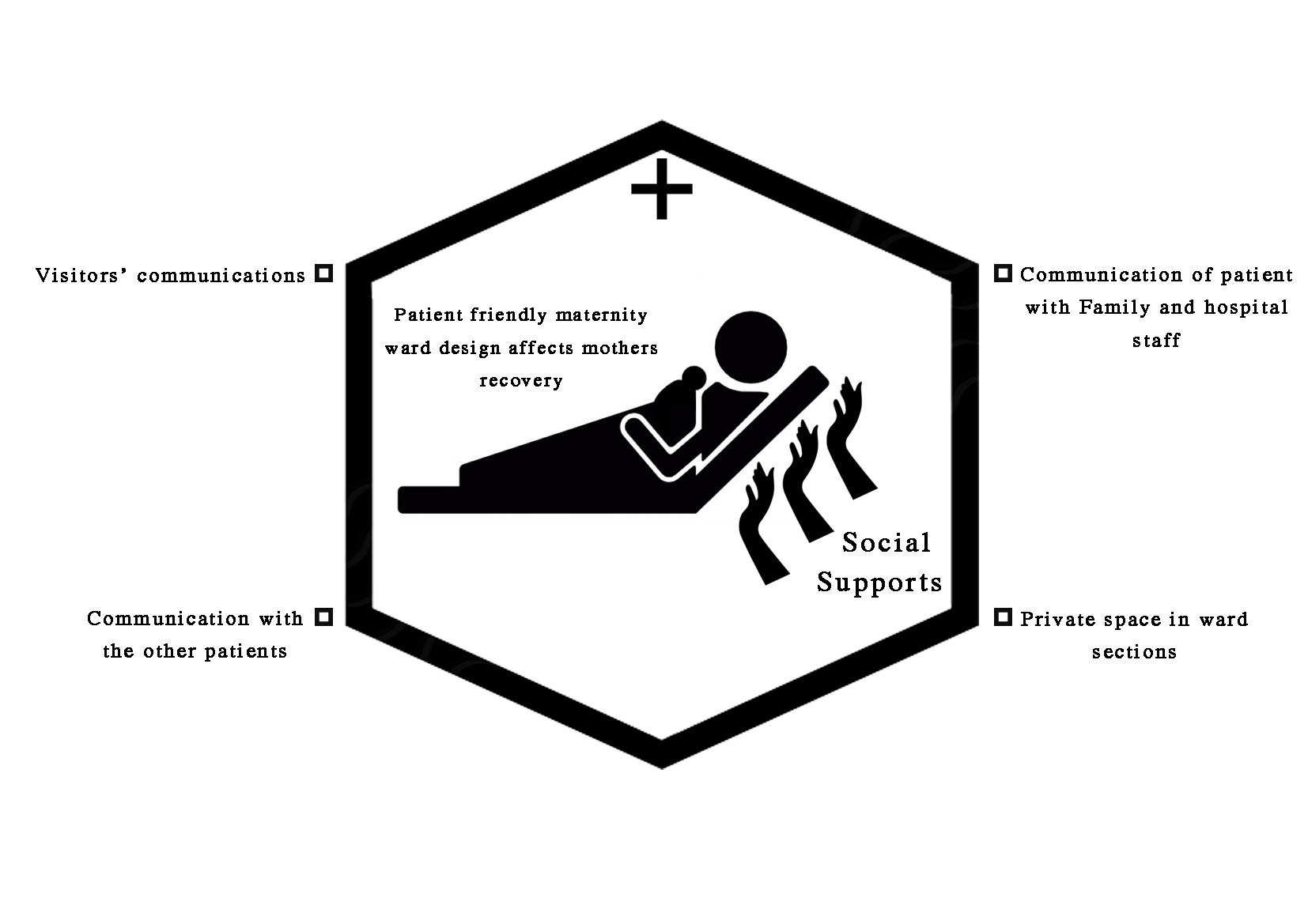BibTeX | RIS | EndNote | Medlars | ProCite | Reference Manager | RefWorks
Send citation to:
URL: http://ijaup.iust.ac.ir/article-1-262-en.html
2- University of Science and arts
3- Central Tehran Branch - Islamic Azad University
In today’s mechanized world, the need for a patient-friendly attitude in the hospitals and its psychological effects on the recovery time of patients has been proven. Considering the special pre and post-partum conditions of a pregnant woman, together with the fact that the mother and child cannot be treated as a patient case, makes these psychological effects more critical in this research, the mental state of pregnant women in association with the social support they receive, and its role on their stay and recovery, was considered. In this research we investigated the role of maternity ward architectural design on the quality of mothers social interactions. To achieve this, a survey has been conducted on the affect of maternity ward architectural design on the mothers social interactions with visitors, medical board, and other patients in maternity units of Tehran’s General Hospitals.
It was found that the establishment of social communications with visitors, hospital staff, and other patients had significantly positive psychological effects on patients. Not only the mental health status of patients was improved, also their recovery time was reduced. This was concluded that the design of healthcare centers should provide maternity unit’s patients effective communication opportunities by providing an appropriate space for patients companies, family members, and visitors.

- To improve the condition of the care facilities and treatment process considering standards and laws in design, essential human factors such as culture, habits, needs, and communication must be measured.
- Therefore, in designing spaces compatible with the identity, habits, and the culture of each country, appropriate accommodations for developing communication among the patients, clients, and the visitors must be taken into consideration. In doing so, a higher level of relaxation and a shorter recovery time is expected.
- Architectural features can contribute to older participants' stress, fear, anxiety, and worry.
| Rights and permissions | |
 | This work is licensed under a Creative Commons Attribution-NonCommercial 4.0 International License. |





